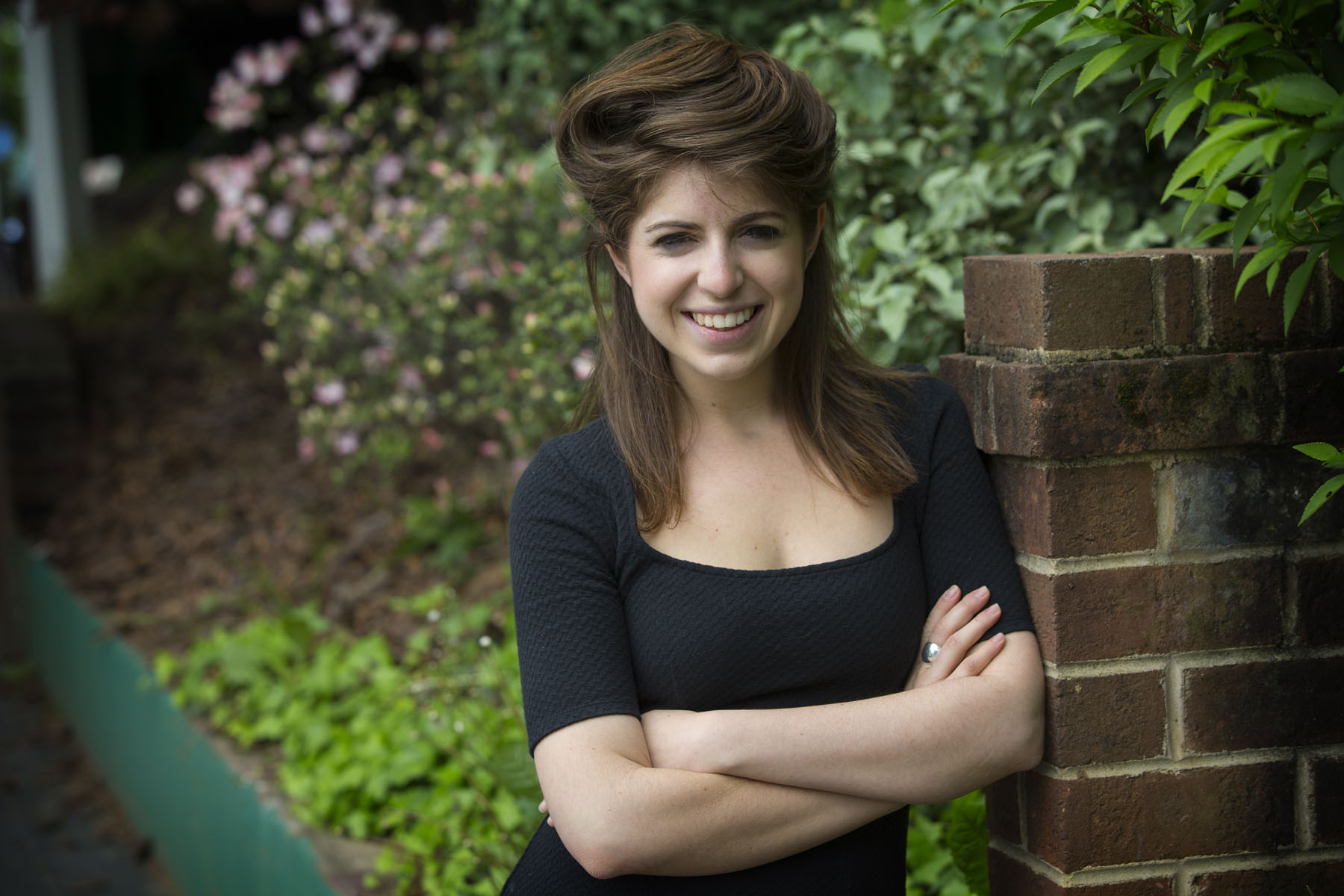If anyone ever told 2013 University of Virginia graduate Amy Curtis to choose one thing and to do it well, she ignored them.
Consider this: When Curtis was shopping for colleges as a student at Daniel Hand High School in Madison, Conn., she visited 37 different schools.
Why so many? Curtis answered quickly; “My family is really into higher education.”
The visits began in her sophomore year, when Curtis’ sister, one class ahead, was college hunting. From then on, every family vacation became a college road trip. “We went to California, we went to Ohio, we went all the way up north … and then down south to North Carolina and Virginia schools,” said Curtis, who speaks at a quick clip. She was accepted to about 14 schools and chose U.Va., but not until she visited Grounds twice more.
A fan of revolutionary history, Curtis declared her major in history in the College of Arts & Sciences and was eager to have “the quintessential college experience.” But it wasn’t long before her curiosity took her to the School of Architecture and a course taught by sustainable communities professor Tim Beatley. She became fascinated with how the built environment impacts peoples’ daily lives and felt that familiar tug to go further afield. Curtis soon declared a minor in urban and environmental planning and started looking for ways to learn even more about the subject outside the classroom.
In 2011, as a second-year student, she helped launch U.Va.’s popular Flash Seminars, a series of “mini-classes” that brings students, faculty and community members together around a subject of common interest. Seminar topics have ranged from U.S. troop withdrawal from Afghanistan to a session titled “Globalization Gangnam Style.” There have been nearly 100 seminars this semester alone.
Curtis, whose tenure as president of Flash Seminars ended in the fall, took the concept a step further, creating a new Open Table discussion series at U.Va’s OpenGrounds, where she is the chief student intern.
“Since I never had taken the courses that I wanted in urban planning because I discovered my passion a little bit late, OpenGrounds allowed me to create my own course work, handpicking professors I thought were really interesting,” she said.
Curtis created a four-month springtime Open Table series, Concept of the City, asking eight professors to lead lunchtime discussions about the best and worst aspects of the larger-than-ever population of urban dwellers.
Bill Sherman, the founding director of OpenGrounds, said Curtis has been a force in the early success of the Flash Seminars program and OpenGounds, largely because she has taken advantage of everything U.Va. has to offer.
“Her Open Table Series on the city is a great example – essentially creating her own course with leading faculty, to be shared by her colleagues and community members,” he said. “Students like her are the key to the University’s success and are destined to be leaders in the future.”
Curtis studied abroad last spring at the National University of Ireland at Galway. She is the editor of EngageUVa, a popular civic engagement newsletter, and was a programming intern at the Institute for the Humanities and Global Cultures, where she conceived “The Future of the University,” a panel discussion she organized to reflect on the attempted ouster last summer of U.Va. President Teresa A. Sullivan. She also managed to squeeze in two independent studies, one in philosophy and another on the sociology of gentrification, was a University Guide, and spent a summer working as an intern on the public radio program, “Backstory with the American History Guys.”
Curtis said she loves collaborating with people. “I feel incredibly lucky that I have been able to interact with so many professors. People here are incredibly accessible,” she said.
A firm believer in self-reliance, she disdains pretension. “I really appreciate that in people, if you don’t take yourself too seriously.”
Curtis said she has cherished her time at U.Va., but is ready to graduate. Two days after she receives her diploma, she will move to Washington, D.C., where she will study how the built environment affects mental health in a neighborhood undergoing gentrification.
With help from a grant from U.Va.’s Center for Global Health, Curtis will be working in the Shaw neighborhood and U Street corridor in Northwest Washington. The region has evolved from being a hub for black entertainment in the early 20th century to a region rife with poverty in the ’70s and ’80s. Today it is undergoing a cultural and economic renaissance that is displacing many of the existing residents.
“I want to explore which residents of Shaw benefit from new amenities and determine how the new racial, cultural and economic diversity affects the mental wellbeing of existing low-income residents, business leaders and newcomers,” Curtis wrote in her grant application.
She admitted that her extracurricular activities have sometimes come at the cost of sleep. “I have gotten a lot better,” she said. “This fourth year I have spent a lot more time solitarily with my readings, which has been really great ... to realize that I really like all of my extracurriculars, but I’m really here to be a student first and foremost.”
When asked if there was anything she didn’t like, Curtis paused for a moment and her voice slowed. “I really don’t like math.”
Media Contact
Article Information
May 12, 2013
/content/class-2013-amy-curtis-sculpts-her-own-educational-path-and-shares-it-others

